

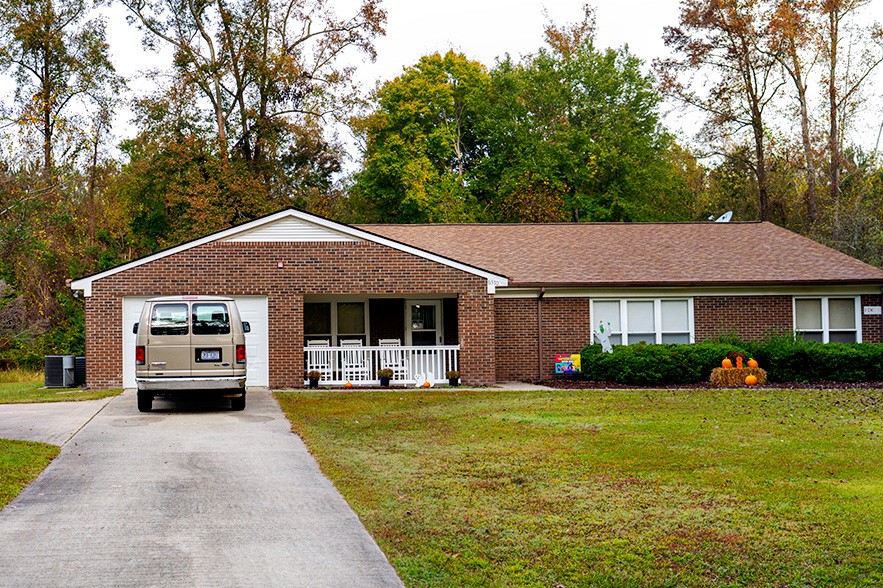
6570 Fairway Dr Grifton
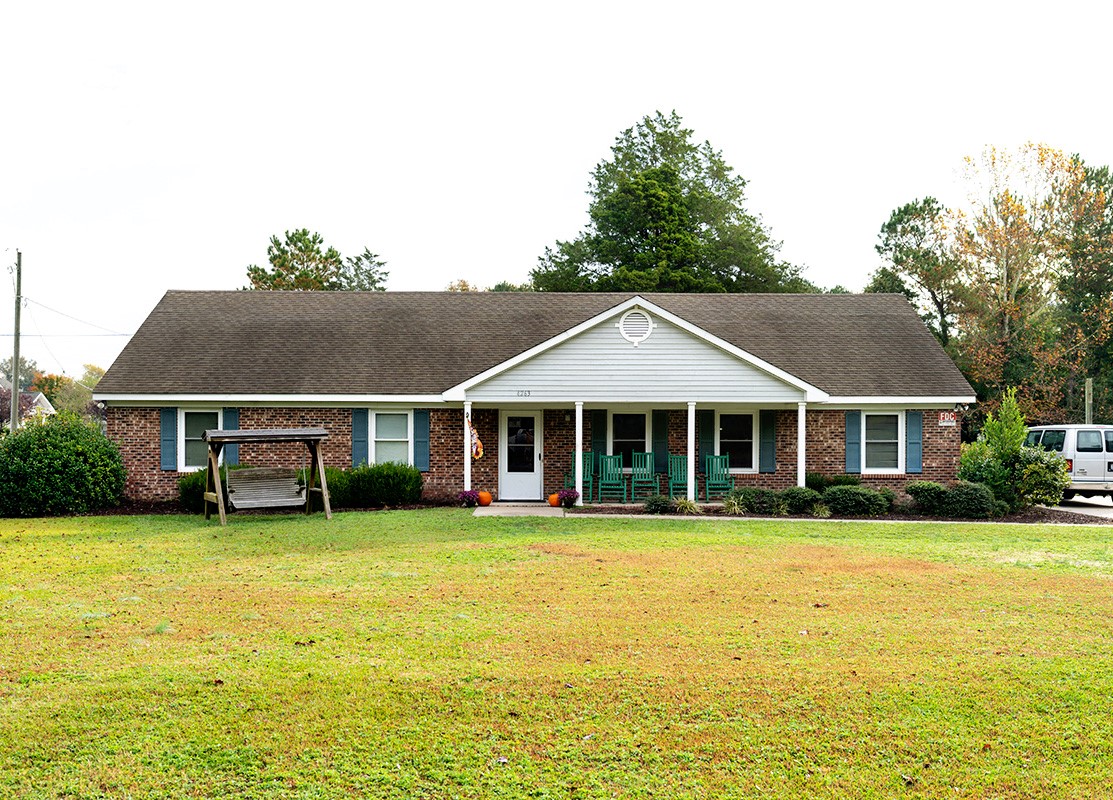
4263 North Edge Rd Ayden
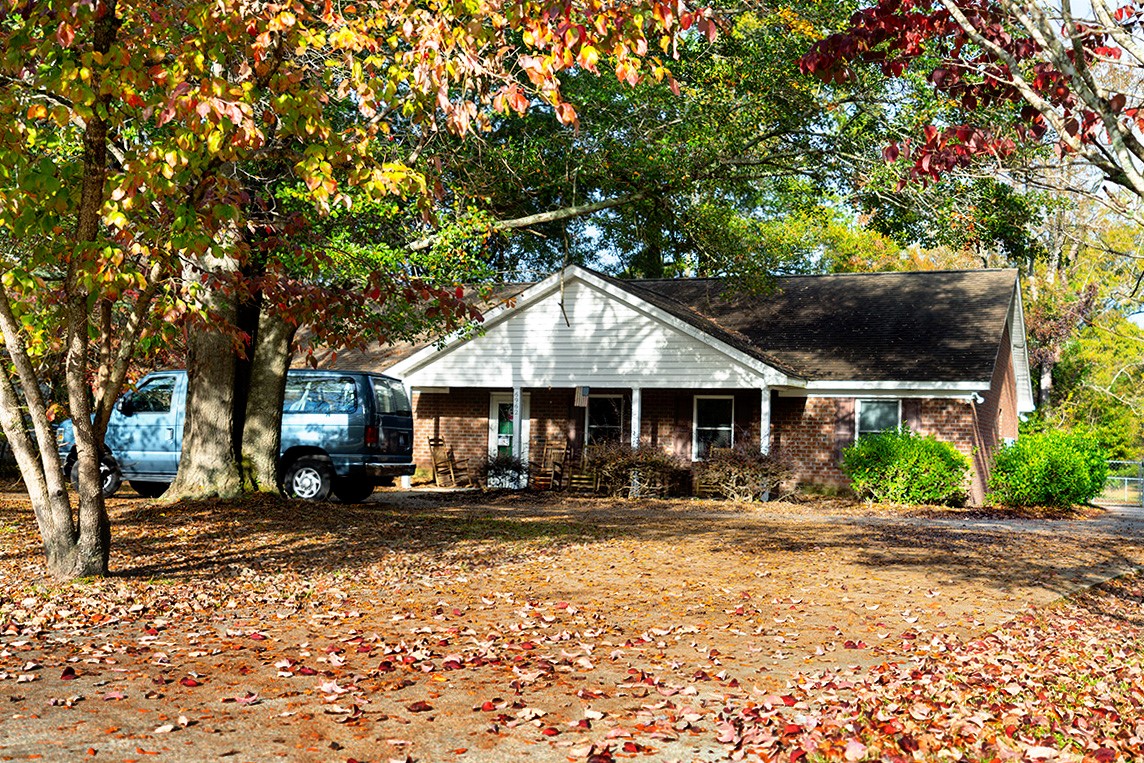
6962 Church St Grifton
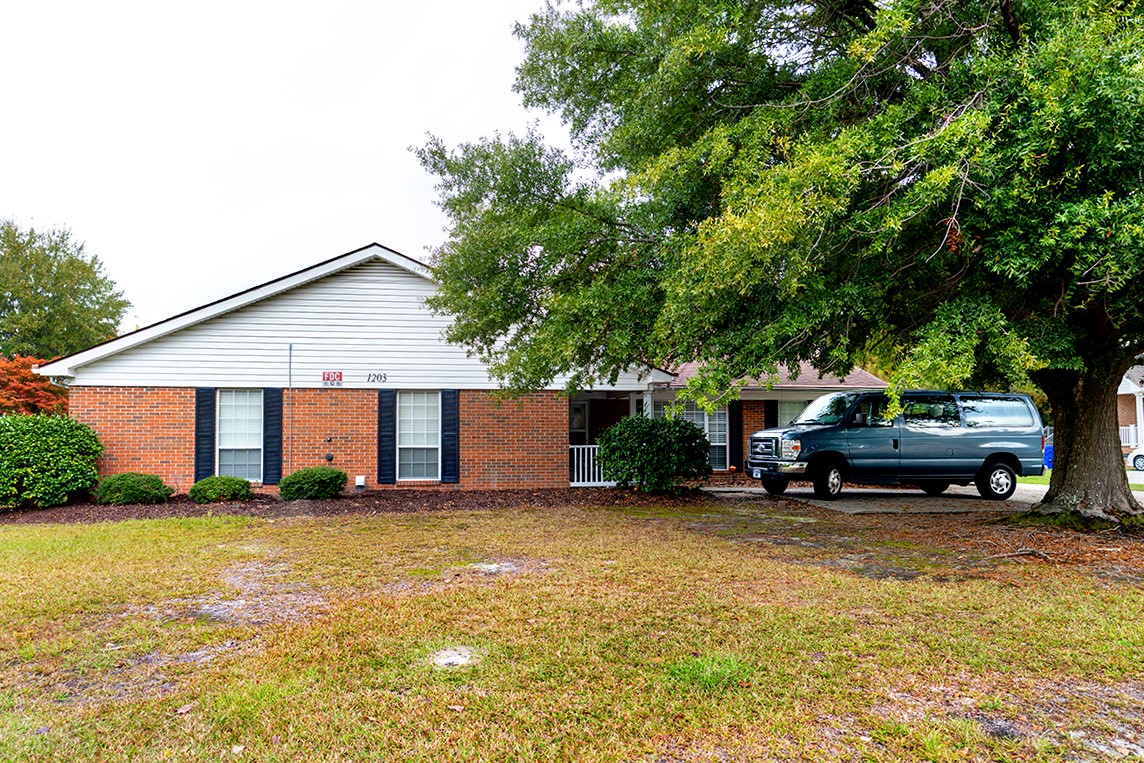
1203 Red Banks Rd Greenville
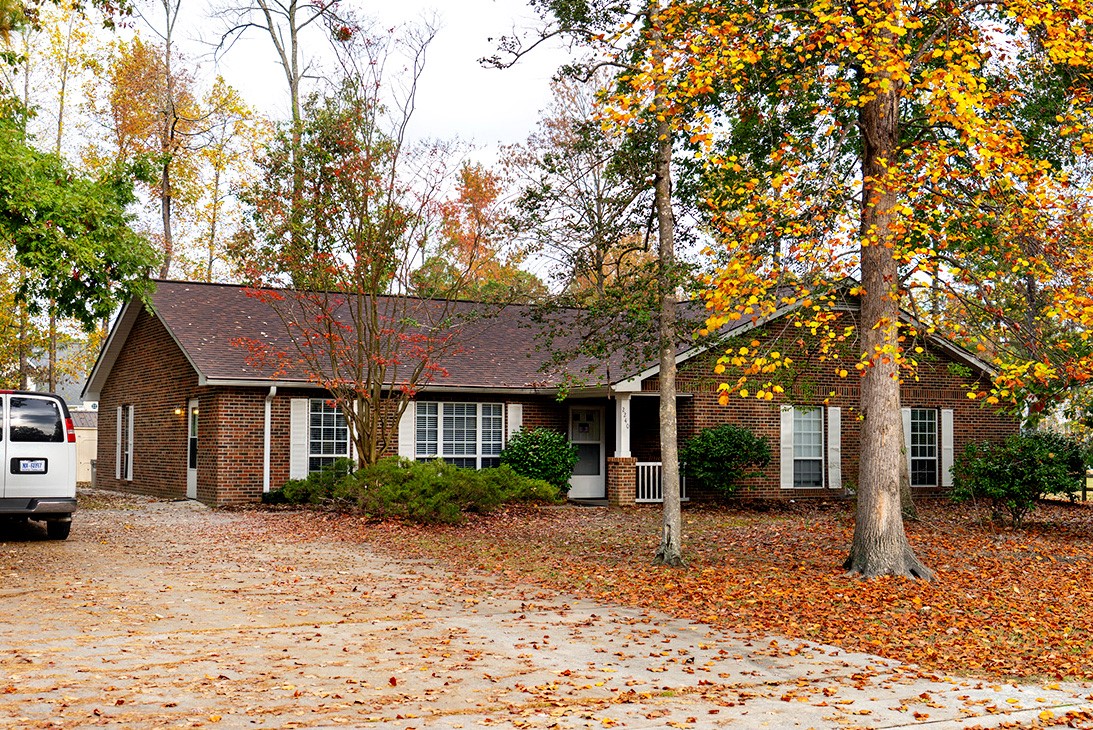
2240 Edgewater Dr Winterville
Pitt County Group Homes History
The Pitt County Group Home Board for Mentally Retarded, Autistic Persons was incorporated on November 20, 1981. The Corporation was founded, in conjunction with the Eastern TEACCH Center, by a group of parents interested in planning the future of their children with autism. The initial directors were Dr. Paul Dowell, Ms. Marie Horne, Ms. Gini Cooper and Dr. Hal Shigley (TEACCH Director).
The Board applied for a Certificate of Need to the State of North Carolina for a 5 bed ICF group home. They also worked with the Association for Retarded Citizens/Housing Development Services to find land to build a HUD funded group home. Mr. Sam Nelson, a developer from Grifton who also had a son living in Caswell Center, offered the Board a lot on Fairway Drive in Grifton. Though zoning allowed the home to be built on the lot, the town Board of Commissioners wanted to have a town hall meeting to receive input from the community. Several of the Board members contacted Mary Grace Bright, an Occupational Therapist at Caswell Center, and asked her to attend the meeting. Mary Grace lived on Fairway Dr and, due to her professional experience and home location, the Board members felt she would provide valuable feedback to the Board.
The Town Hall meeting took place in the spring of 1983. Mary Grace attended the meeting, became very excited about the group home, and immediately after the meeting spoke with Dr. Paul Dowell about job opportunities with the group home. Mary Grace was hired as the first Executive Director for Pitt County Group Homes and began her 38-year career with PCGH on December 1, 1983. The first three months were spent selecting residents, purchasing furniture, hiring and training staff, hiring consultants and learning about group home operations.
PCGH #1, Fairway Dr., was the 8th ICF group home to open in the state of NC.
The first resident moved into the group home in March 1984 and the home was full (5 beds) by the end of the month. Three of the original five continue to make it their home. The residents were welcomed in the town of Grifton and were quickly involved in church and other community activities. During the day they attended the ADAP in Greenville.
In 1988 an opportunity to develop two more five bed group homes was made available through a 1395 transfer of beds from Caswell Center. A Certificate of Need was written and approved. PCGH #2 opened in Ayden in the fall of 1989 and PCGH #3 opened in Grifton in January 1990. All of the residents were transferred from Caswell Center, a state institution. With the expansion of the group homes, ADAP was no longer able to serve residents of PCGH. Therefore, PCGH day program (DAP) was started in Grifton in the site of the old J. A. Rogers Furniture Store.
In 1989 and 1990, The Association for Retarded Citizens of Pitt County was in the process of developing a 6 bed DDA group home in Greenville for adult women. For a variety of reasons, they approached the PCGH Board of Directors and asked if they would take over the home. The Board agreed and PCGH #4 was opened in the fall of 1990. Some of the women had been living at Caswell Center and some had been living at home. They all attended East Carolina Vocational Center during the day where they were employed by the Sheltered Workshop.
In 1993 another opportunity was realized when the Board was able to open a 6 bed DDA home, PCGH #5 for adult men in Winterville. The development of this home was met with opposition from the developer of the subdivision who hired a lawyer to stop the building. The day before the case was scheduled to be heard in court, the developer dropped his opposition. The neighbors quickly realized the home was an asset to the neighborhood and embraced the gentlemen living there.
In 1998, the Board decided to increase the number of beds in the three ICF homes from 5 to 6. A Certificate of Need was written and approved by the State of NC. This required construction for two of the homes. During construction in September 1999, Eastern NC was ravaged by Hurricane Floyd and the flooding that followed. PCGH #3 was flooded with approximately three feet of water. Thankfully, the residents had been relocated to a “house on the lane” at Caswell Center prior to the flooding. They were able to stay there with their staff until the home could be rebuilt. After another minor flooding event, the Board was able to take advantage of the “buy out” program and relocate the group home to higher ground in 2006.
PCGH was impacted by COVID, just like the rest of the world. For the first time in their 36 years, all of the group homes went on lock down, March 17, 2020. Residents were unable to go for home visits and family could only visit outside at the group home. Several families took their loved one’s home for an extended period. Home visits were allowed at Thanksgiving but were not allowed at Christmas. Thankfully, vaccines were available in January 2021 and by June 100% of residents and staff were vaccinated. This allowed for home visits, DAP reopening and some community outings.
In March 2021, Mary Grace informed the PCGH Board of Directors she was ready to retire. After several months of thoughtfulness and discussion, the Board made the decision to sell PCGH. An attorney was hired, a list of acceptable buyers was developed, and the process began. Effective December 19, 2021, RHA Health Services became the owners of PCGH.
During the buyout process the Board had numerous discussions about how to use the proceeds of the sale. Because PCGH was a private, non-profit business, the proceeds had to be distributed to other non-profit organizations. Out of those discussions, Pitt County Group Homes Foundation emerged. It is the desire of the Board for the legacy of Pitt County Group Homes to continue for the benefit of individuals with intellectual disabilities and autism for many years to come.
Throughout the history of PCGH, the number one priority of the Board of Directors was providing the best possible care in a home like atmosphere. Individuals living in the homes were served by loving staff who went above and beyond to care for them. They were involved in local churches and participated in many community activities including going out to eat every week. Though many of our folks had caring and loving families, PCGH was a second family to them and their families.
